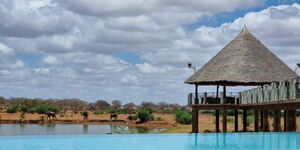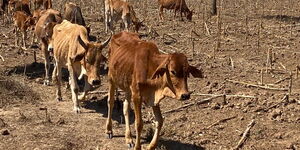A recent report by Visual Capitalist themed The World’s Billionaires, by Generation, about 9 per cent of the world's super rich invest in the food and beverage industry. This is also a reality in Kenya as a majority of them move away from real estate and money markets to establish a niche in this lucrative sector.
For the common person, a mention of wine and champagne reminds them luxury, celebrations and exclusivity. However, this is not the case for a few individuals who fall in the super rich class. For them the words mean money and investment.
The demand for Burgundy and champagne has exponentially increased despite the wineries being able to only produce a limited amount at a time. These dynamics have caught the attention of Kenyan billionaires who are heavily investing in luxury drinks, which they view as interesting assets.
According to Knight Frank Wealth Report 2021, fine Wine and Champagne topped the list of Luxury Investment Index, up from the second position in 2020. It beat fast movers in the market such as houses and flashy cars.
The demand for these luxury drinks has pushed the super-rich to embrace the sector even more.
"More people today are interested in wine as an investment choice, either to make money or for later consumption. Kenyans are more knowledgeable about wine now than ever before. We are importing more wine varieties than any country in Africa," a wine expert stated.
Unlike other drinks, the production of wine and champagne is restricted. For instance, Champagne can only be produced in the Champagne region of France.
Other than the limited production, the drinks need to meet a set of requirements, controlling their trademark, something that pushes the prices higher compared to other drinks.
Due to the limited supply in these luxury drinks, Kenyan investors are celebrating the soaring prices which have delivered some of the best returns in the last two years.
How They Make Money
Due to the dynamics, wealthy Kenyans are buying bottles of wines and champagne and store them for later sale when the demand is higher. In some cases, they do not store the bottles physically but hire out recommended facilities where they stock them for years.
Besides storing champagne and vintage wines, some invest in blue-chip wine stocks and funds.
"The fine wine market has outperformed most global equities and exchange-traded funds (ETFs), and is less volatile than real estate or gold. More importantly, it has delivered 13.6 per cent annualised returns over the past 15 years," Vivo wines stated in their report.
Some of the wines and champagnes Kenyans are stocking include Antinori Sassicaia from Italy, Robert Mondavi from the US, Catena Malbec Argentino from Argentina, Domaine Faiveley Clos de Vougeot Grand Cru from Burgundy and Creation Wines from Rupert and Rothschild from South Africa.
The champagne brands in Kenya include premium champagne brand Moët & Chandon and Maison Perrier-Jouët and Dom Perignon, both from France.












